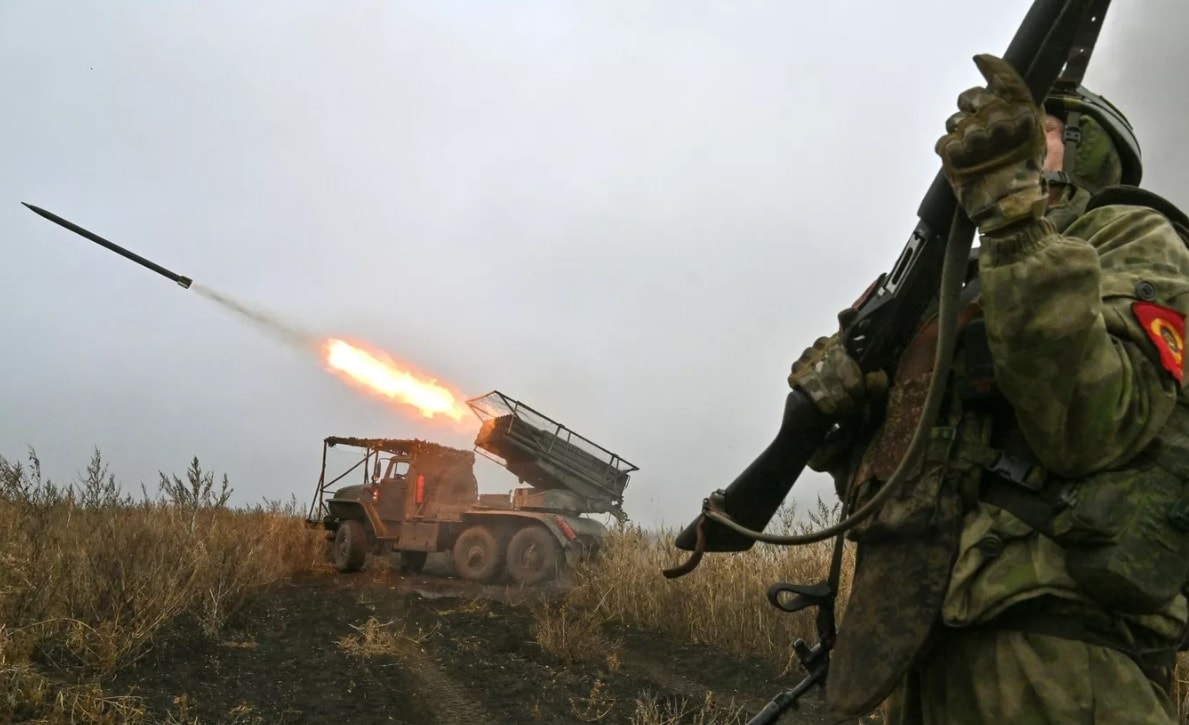Ukraine is considering withdrawing troops from Russia's Kursk province amid Moscow's increased military activity in the region.

The above information was quoted by The Kyiv Independent of Ukraine on the same day. The content of the Telegraph was published in the context of a number of recent media reports warning that the Ukrainian army forces occupying Kursk province are facing a high risk of being surrounded after the Russian army made new breakthroughs on the battlefield.
Accordingly, about 10,000 Ukrainian troops are at risk of being surrounded after Russia broke through important defense lines and disrupted logistics and weapons supply chains.
Meanwhile, Russia's TASS news agency on March 8 also quoted the content of The New York Post when it said that Kiev is likely to withdraw troops from Russia's Kursk border area within the next 2 weeks. The above content was obtained by The New York Post from sources in the Ukrainian army.
Accordingly, Ukrainian soldiers said that military operations in Russia's Kursk province "have caused a higher than expected casualty rate". In addition, this is also "distracting" Ukrainian forces as the Russian army continues to advance.
According to The Kyiv Independent, on March 7, an unnamed Ukrainian military official told the newspaper that Russia had disrupted their ammunition and food supply chains and they were facing a siege. Meanwhile, another said the Russian military had made breakthroughs in the past few days.
Reuters news agency said that Kiev's plan to use the presence of thousands of Ukrainian troops in Kursk as leverage in peace talks with Moscow may not be successful. Over the past three days, the situation in Ukraine's Kursk region has deteriorated significantly as Russian forces have recaptured key areas in counter-offensives. Moscow's attacks have cut off almost all Ukrainian forces and cut off the main unit from vital supply lines.
According to another military source, about three-quarters of Ukrainian forces in Russia are at risk of being completely surrounded. Data from open-source maps shows that Ukrainian forces have only a very narrow land corridor to link up with other units near the Russian border, and Russian forces are closing in to cut it off.
DeepState, a group that monitors the Ukraine conflict, said Russian forces were also pressing Kiev's positions on the border with the Sumy region and trying to cut off supplies to Ukrainian forces inside Kursk.
A source in the Office of President Volodymyr Zelensky told Time magazine that operations in Russia's Kursk province were most affected by the recent US suspension of intelligence sharing with the country.
Previously, CNN reported that on March 5, CIA Director John Ratcliffe announced that the US had suspended intelligence assistance and arms shipments to Ukraine after a tense meeting in the Oval Office between President Zelensky and President Trump on February 28. Mr. Ratcliffe shared the information with Fox Business reporter Maria Bartiromo in an interview on March 5.
Accordingly, the US side has stopped sharing intelligence information since US President Donald Trump made moves to increase pressure on Ukraine ahead of planned peace talks.
Ukraine’s withdrawal from Kursk ahead of peace talks will be seen as a major blow to the negotiating position of the Ukrainian delegation. President Zelensky has previously said that Ukraine’s occupation of Russia’s Kursk region could play a role in potential future talks.
According to the Telegraph, third-country troops are playing a key role in the attack on Ukrainian supply lines in Kursk Oblast. Up to 12,000 third-party troops were deployed to Kursk Oblast last fall to support Russian forces against a Ukrainian offensive in August 2024. After reports in January that the third-country troops had withdrawn, it was revealed last month that they had been redeployed to Kursk.
According to The Kyiv Independent, in August 2024, Ukraine launched a surprise cross-border attack on Russia's Kursk province and took control of an area of about 1,300 square kilometers, marking the first occupation by a foreign army in Russia since World War II. In a statement by the Russian military, after 6 months of fighting, Moscow regained control of about 64% of the area.